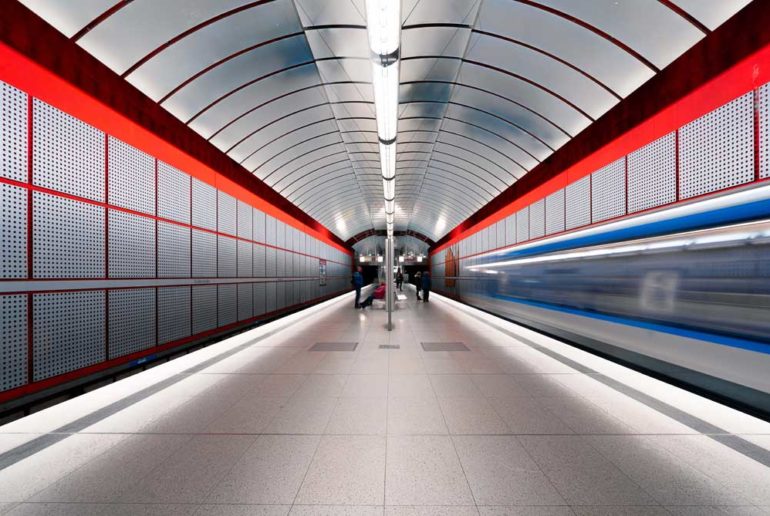Different tracks. Public transport in 2020

Probably the most used, yet still so very applicable, description of 2020 is “well I didn’t predict that…”
None of us foresaw the sudden emergence of a global pandemic, and even when we became aware of its spread, very few of us could imagine how it would shape our lives going forward, the impact it would have on families and loved ones, and the profound and structural changes it would have to the economies and the individual industries we work in.
A dramatic drop in passenger numbers
For those of us who work in public transport, the dramatic drop in passenger numbers and the challenges of continuing to provide services, put our staff and our businesses at the forefront of dealing with the consequences of the changes wrought. The personal and financial costs of this year will be felt for a long time, and there are structural changes to working patterns and society that are almost certainly going to be a permanent feature going forward.
Just prior to all of this, Vectura Advisory was set up, to provide high quality advice with a focus on liberalised transport markets. Despite the turmoil, this objective has been achieved throughout the year, but the business has also had to be agile and responsive to the changing market conditions and needs of our clients.
Businesses and authorities are looking forward
It is positive that many businesses and authorities are still looking forward, and despite the short-term challenges, they are still focused on delivering long term improvements in the services that they provide, and to build and develop their businesses. However, this year has also presented huge challenges, and has put many organisations under huge strain, and has required all focus on short term actions.
Projects undertaken during the year by Vectura Advisory reflect this changing world, and we have has been pleased to support clients in their short term and long term requirements, with assignments including business improvement, strategy and policy development, and forward planning, in the UK and in the EU.
What has been pleasing is that despite all the uncertainty, has been the opportunity to work with excellent people, support client requirements, and to build a strong team of associates who provide Vectura Advisory with the depth to deliver across different assignments.
Predicting the future
Can anyone predict with confidence what 2021 may bring? Probably not, but here are a few thoughts about what comes next.
There will continue to be a need for high quality public transport. The climate emergency is still with us, urbanisation is a trend that will continue, and there will be a need and demand for people to travel. The factors that made public transport at the forefront of decisions around future mobility haven’t gone away, and these challenges and pressures must be addressed once the immediacy of the Covid pandemic has eased.
Public transport needs to demonstrate it is part of the post Covid solution
Passenger numbers have naturally dramatically reduced due to lockdowns and increased working from home, but also concerns about shared space. Your own car feels safer than a shared rail or metro carriage. The sector has only continued to operate due to large levels of direct additional government funding. Services which have not received emergency funding have ceased operation. This support has a large direct financial cost to government, we can not assume this level of funding will always be provided. We need to re-earn our right to be considered as part of the post Covid solution.
Proactive authorities and operators need to be planning ahead now. To focus on future needs of users, to build solutions and services that meet the challenges that existed before the current crisis, and which meet the additional requirements that will exist going forward. Doing the same as before isn’t an option. To use phrase frequently used in a different context, we need to have “oven ready” solutions available when policy makers ask the questions.
The benefit of competition and market opening must not be lost. Much of the rail sectors resurgence and growth in the last decade has been driven by opening the sector upto competition, whether through the competitive tendering of PSO services or the emergence of open access operators. We need to continue to promote competition, and to resist calls to revert back to state owned monopoly providers. One of the disappointing aspects of this year has been the perceived faster support given to state owned operators, putting into jeopardy the viability of new market entrants. A level playing field is essential. This should also apply to new services under consideration, a relevant example is the potential reintroduction of night trains, where competitive tendering for the operator should apply.
So where does this take the public transport sector?
The last global pandemic heralded the start of the roaring 20’s, as innovation and the loosening of previous norms led to rapid changes and growth. However, the importance of solid foundations and a sustainable future is essential, as was discovered when the roaring 20’s crashed with the all too known consequences.
Will we have another roaring 20’s, and will the transport sector adopt innovation and a passenger centric, financially sustainable future? Or will caution and risk aversion take us to an unsustainable future?
We need to re-earn our right to be part of the solution, let’s demonstrate it.

